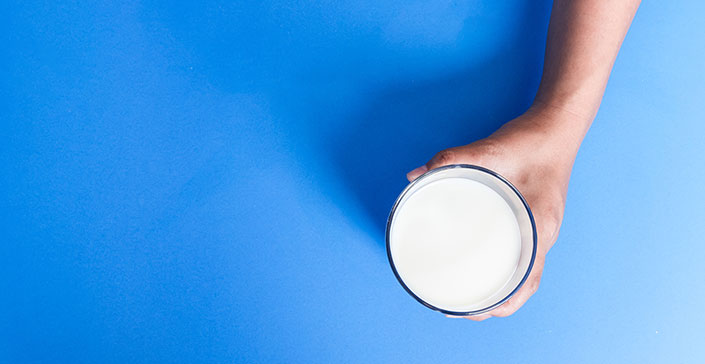
Sugar
While you may think to swap your regular milk for soya milk is an achievement, soya milk is often sweetened with sugar to give it the same taste that natural cows milk provides. There can even be up to 12g of sugar per soya milk carton! Of course, that much sugar is never a good thing for your skin. It can contribute to glycation in the skin which is when sugar molecules damage collagen in the skin resulting in a loss of firmness, elasticity and consequent premature ageing.But don't panic, you can combat the effects of deepened wrinkles and saggy skin with serums that include grapefruit oil or vitamin C such as ZO®'s Ossential® C-Bright Serum.
Calcium
It's common knowledge that a lack of calcium can mean a loss in bone density. But did you know that a calcium-deficiency can also exacerbate signs of ageing in the face as well? A dairy-free diet and insufficient calcium consumption can cause eye sockets to expand, making your eyes look more sunken, deep set and tired. Furthermore, it can reshape your entire facial structure, losing bone density in your jawline.If you're insistent on continuing your dairy-free diet, you can opt for an increase in fruit and vegetables in your diet, such as broccoli, spinach and kale as well as almonds, figs and oranges.
It's important to remember that if you want to cut out a major food group, you need to make sure to balance it out, so your body still gets the correct nourishment it needs.
 By Yoana
By Yoana